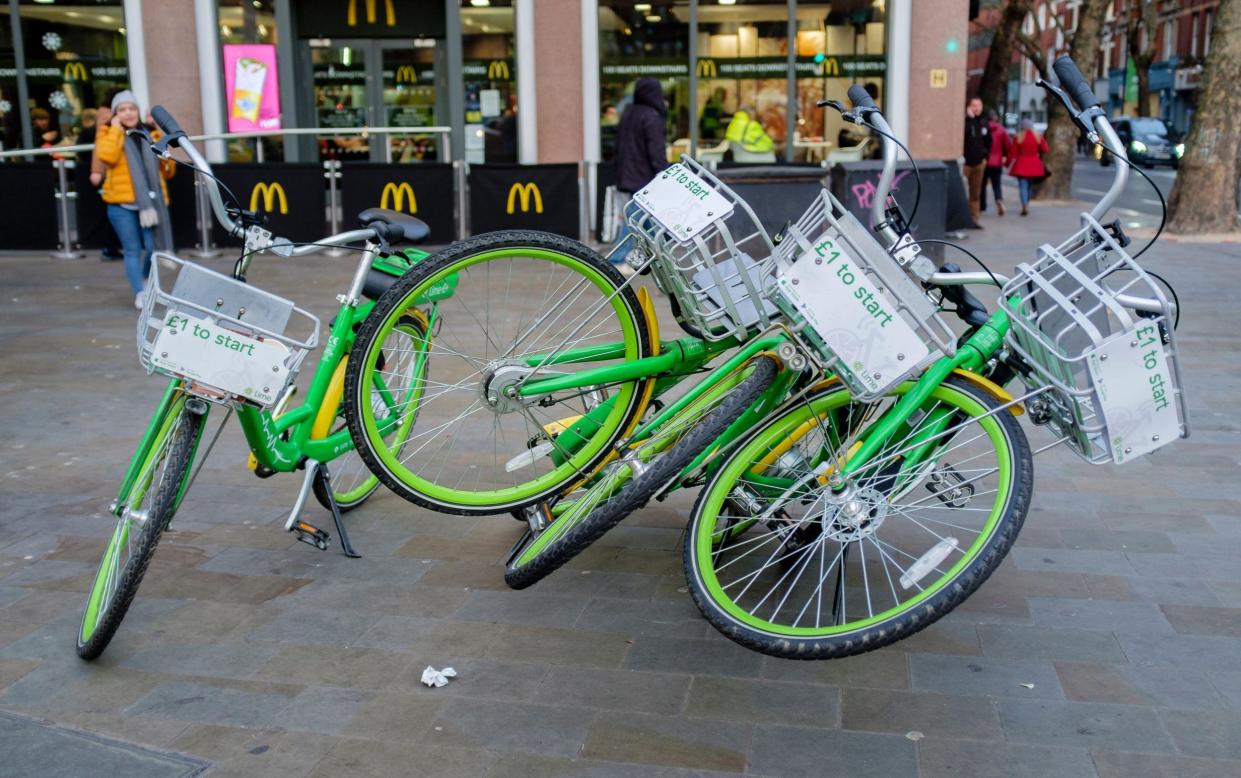Dumped e-bikes ‘dangerous’ for the disabled, think tank report finds

E-bikes being dumped by irresponsible users have turned pavements into dangerous no-go zones for the disabled, according to a report by a leading think tank.
Policy Exchange said users of e-bikes and e-scooters should be fined if they left them obstructing pavements or parked them on their side.
It said the failure of Government, councils and police to tackle the scourge of e-bikes meant they had become a “significant safety risk” to the disabled, who account for up to 20 per cent of the population.
In its report, it quoted three disabled parliamentarians - Lord Shinkwin, Baroness Brinton and Lord Blencathra - who said pavements had become “completely impassable” and “actively dangerous” because of irresponsible users discarding the bikes and scooters.
They claimed the “passivity” of councils and the Department of Transport (DfT) had turned the disabled into “second-class citizens” who are effectively facing discrimination as a result.
The report by Policy Exchange’s head of crime and justice David Spencer, a former Met Police detective chief inspector, said users of e-bikes or e-scooters who left them parked on their side or obstructing the pavement should be fined a penalty charge equivalent to a parking fine, which is on average £90.
Mr Spencer said the fines could be automatically deducted from an irresponsible user’s payment card the next time they hired an e-bike or e-scooter if they left it obstructing a pavement. If they were repeatedly fined, they would be banned from using them.
‘An insuperable barrier’
He cited Guide Dogs research which found 97 per cent of people with vision impairment had encountered problems with street obstructions, citing a “dramatic” increase in the number of rental e-bikes and e-scooters.
Policy Exchange also recommended the DfT should introduce a licensing scheme requiring e-bike and e-scooter hire firms to pay the full cost of installing bays and removing dangerously or irresponsibly parked bikes within at least an hour.
The think tank said the problem was compounded in Westminster, the public face of the nation, where disabled people faced the twin threats of e-bikes and protests by organisations such as Just Stop Oil.
“There is nothing less than a culture of impunity around Parliament. While all who work and visit Westminster are affected by these behaviours, the impact is perhaps most keenly felt by disabled people,” said the report. What may be a mere inconvenience for non-disabled people may be an insuperable barrier to a person with a disability.”
Lord Shinkwin said discarded e-bikes made pavements “completely impassable” for the disabled. “At best it’s obstructive and at worst downright dangerous, for example, when they’re dumped on a dropped kerb the fact is they are larger and much heavier than a normal bicycle, which makes them impossible to move from a wheelchair,” he said.
Lord Blencathra said: “The Department for Transport must stop pandering to the e-bike and scooter thugs who ride on the pavement and dump their bikes on the pavement. Some of these big electric e-bikes are the same size and weight as motorcycle trail bikes.”

 Yahoo News
Yahoo News 
